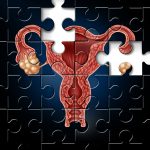Probiotics May Lower the Need for Antibiotics
Node Smith, ND
A study published in the European Journal of Public Health recently acknowledges that probiotics taken as a preventative measure may lower the number of antibiotic prescriptions needed.1 With a global search for ways to reduce dependence on antibiotics, and slow the rate of antibiotic resistance, this is seemingly great news.
Research was a systematic review, authored by a group of 10 international scientists
The research was a systematic review, authored by a group of ten international scientists. The studies considered looked at the administration of Lactobacillus or Bifidobacterium to healthy individuals to determine the impact of probiotics on incidence and duration of common infectious diseases. All of the studies also tracked antibiotic use. The study noted that there was a 29% lower rate of antibiotic use in healthy infants and children who were administered a probiotic versus a placebo. No studies on adults were included.
Author Andi Shane MD MPH, Emory University School of Medicine, says, “Taken together, the studies we included in this analysis demonstrated that probiotic supplementation is more effective than placebo for reducing the incidence or duration of certain illnesses: acute respiratory tract infections, acute digestive infections, and acute ear infections. This analysis shows that, in addition to those advantages, probiotic supplementation may reduce the use of antibiotics.”
Probiotics reduced the incidence and duration of infections
A possible conclusion of this research, and one which the authors are supporting, is that the probiotics reduced the incidence and duration of infections. When individuals get sick less, or get better faster, antibiotics are less likely to be prescribed. In addition, authors support the possibility of using probiotics as a replacement for antibiotics for self-limiting illness that don’t require antibiotics.
Previous research notes a high occurrence of unnecessary antibiotic prescriptions
Previous research notes a high occurrence of unnecessary or inappropriate antibiotic prescriptions. This contributes to a growing public health concern of antimicrobial resistance, which is more and more common in hospital settings worldwide. Probiotics may help mitigate some of these prescriptions while also having positive impacts on children’s long-term health.
Source:
- King S, Tancredi D, Lenoir-wijnkoop I, et al. Does probiotic consumption reduce antibiotic utilization for common acute infections? A systematic review and meta-analysis. Eur J Public Health. 2018.
 Node Smith, ND, is a naturopathic physician in Portland, OR and associate editor for NDNR. He has been instrumental in maintaining a firm connection to the philosophy and heritage of naturopathic medicine among the next generation of docs. He helped found the first multi-generational experiential retreat, which brings elders, alumni, and students together for a weekend camp-out where naturopathic medicine and medical philosophy are experienced in nature. Four years ago he helped found the non-profit, Association for Naturopathic ReVitalization (ANR), for which he serves as the board chairman. ANR has a mission to inspire health practitioners to embody the naturopathic principles through experiential education. Node also has a firm belief that the next era of naturopathic medicine will see a resurgence of in-patient facilities which use fasting, earthing, hydrotherapy and homeopathy to bring people back from chronic diseases of modern living; he is involved in numerous conversations and projects to bring about this vision.
Node Smith, ND, is a naturopathic physician in Portland, OR and associate editor for NDNR. He has been instrumental in maintaining a firm connection to the philosophy and heritage of naturopathic medicine among the next generation of docs. He helped found the first multi-generational experiential retreat, which brings elders, alumni, and students together for a weekend camp-out where naturopathic medicine and medical philosophy are experienced in nature. Four years ago he helped found the non-profit, Association for Naturopathic ReVitalization (ANR), for which he serves as the board chairman. ANR has a mission to inspire health practitioners to embody the naturopathic principles through experiential education. Node also has a firm belief that the next era of naturopathic medicine will see a resurgence of in-patient facilities which use fasting, earthing, hydrotherapy and homeopathy to bring people back from chronic diseases of modern living; he is involved in numerous conversations and projects to bring about this vision.










